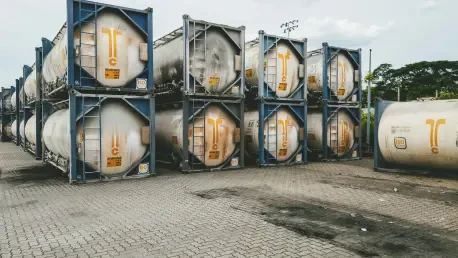
The United States finds itself at a critical crossroads in the battle against climate change, as the current administration's unrelenting drive to expand oil and gas production threatens to unravel decades of environmental progress and push global warming beyond catastrophic thresholds. This

In a world increasingly focused on sustainability, the challenge of integrating renewable fuels into heavy industries like maritime shipping and agriculture has taken center stage, sparking vital discussions about balancing economic and environmental needs. Recent legislative efforts in the U.S.

I'm thrilled to sit down with Christopher Hailstone, a seasoned expert in international finance and taxation policy, whose deep understanding of global tax frameworks and their implications for developing economies is unparalleled. With a keen focus on how policies shape foreign investment,

In a striking turn of events, oil prices have plummeted, with Brent crude futures dipping to $66.37 per barrel and U.S. West Texas Intermediate (WTI) crude settling at $62.37 per barrel, marking declines of 1.7% and 2.0%, respectively. This sharp downturn has sent ripples through global markets,

What happens when a nation’s tax policies choke its own industries, pushing giants to seek refuge in foreign markets? Pakistan’s largest refiner, Cnergyico, finds itself in this very predicament, forced to pivot dramatically as domestic sales crumble under the weight of punitive taxation. With

In the ever-evolving landscape of the energy and industrial sectors, few companies have managed to balance growth ambitions with shareholder returns as effectively as Warrior Met Coal, an Alabama-based producer of metallurgical coal essential for steel manufacturing. With a sharp focus on